- Home
- Hilary Mantel
An Experiment in Love: A Novel Page 3
An Experiment in Love: A Novel Read online
Page 3
But then the landlady yielded to pressure to install baths and hot-water systems for her tenants. Half my bedroom disappeared behind a partition, and became a white, unheated box. On the first day after the installation was finished, I climbed into the tub in my clothes – without the water in, of course – just to see what it would feel like. It felt frozen, glazed, slippery; enamelled cold struck into my bones.
The rent was increased, but shortly afterwards the landlady began to sell off her houses. She must have wanted to be rid of them quickly, because her asking price was only five hundred pounds. My parents went into their bedroom and hissed at each other. A heavy thumping came from the floorboards above. I loitered at the window in our front room, admiring dogs that came and went; I hoped to get a dog, but my mother said the very limit of her tolerance would be a small and perfectly house-trained cat. I strained my ears for the words ‘Kingston-upon-Hull’.
My parents came downstairs after two hours. There was a high colour in my mother’s cheeks. ‘We are to become owner-occupiers,’ she said.
Karina’s parents did not have five hundred pounds, so they continued to rent their house from the new landlord. ‘You think you’re so swanky,’ Karina said. ‘You think you’re so well-off.’
Every day Karina and I used to walk to school together. We toddled down Curzon Street towards the town centre, turning left down Eliza Street at the pub called the Ladysmith. Most streets had a pub on the corner, and they were usually named after the younger children of Queen Victoria, or dead generals, or victories in colonial wars; we were too young to know this. We rolled downhill, guided by the mill chimneys and their strange Italianate architecture – yellow brick and pink brick and grimy brick – and everywhere black vistas fell away, railway embankments and waste ground, war damage and smoke; at the end of Bismarck Street we looked down on the puffing chimneys of houses below, ranged in their rows, marching down and down into the murky valley.
We passed the Irish club, and the florist’s with its small stiff pink-and-white carnations in a bucket, and the drapers called ‘Elvina’s’, which displayed in its window Bear Brand stockings and knife-pleated skirts like cloth concertinas and pasty-shaped hats on false heads. We passed the confectioner’s – or failed to pass it; the window attracted Karina. She balled her hands into her pockets, and leant back, her feet apart; she looked rooted, immovable. The cakes were stacked on decks of sloping shelves, set out on pink doilies whitened by falls of icing sugar. There were vanilla slices, their airy tiers of pastry glued together with confectioners’ custard, fat and lolling like a yellow tongue. There were bubbling jam puffs and ballooning Eccles cakes, slashed to show their plump currant insides. There were jam tarts the size of traffic lights; there were whinberry pies oozing juice like black blood.
‘Look at them buns,’ Karina would say. ‘Look.’ I would turn sideways and see her intent face. Sometimes the tip of her tongue would appear, and slide slowly upwards towards her flat nose. There were sponge buns shaped like fat mushrooms, topped with pink icing and half a glace cherry. There were coconut pyramids, and low square house-shaped chocolate buns, finished with a big roll of chocolate-wrapped marzipan which was solid as the barrel of a cannon.
I waited for Karina to choose one, to go in and buy it, because I knew that her parents gave her money every day, at least 3d. and sometimes as much as 6d. But after examining the cakes for some time, after discussing them, after speculating on their likely taste and texture until my mouth was full of saliva, Karina would fall silent, and turn away, with something obstinate in her face, something puzzled and pained, some expression which was too complicated for me to identify. And so we would go to school.
Two years went by, marked less by scholastic achievement than by crazes. There was a yo-yo craze, and a fashion for paper games. There were whole weeks when we did nothing but beg stiff plain paper to fold and crease and manufacture things we called ‘Quackers’, disembodied palm-sized beaks that you snapped at people’s noses. There were skipping outbreaks and new rhymes, new rhymes and amalgamations and blends of old ones:
‘Manchester Guardian, Evening News
Here comes a cat in high-heel shoes.
Clock strikes one,
Clock strikes two,
Clock has a finger and it’s pointing at you.
Mother mother I am sick,
Send for the doctor quick quick quick.
Doctor doctor
Will I die?
Course you will and so will I . . . ’
Karina was an efficient skipper. Her feet thundered into the pavement. Up, down, her knees drawn up to her chest; her face wore no expression at all.
We passed through the hands of Miss Whittaker, who hit us on the backs of our knees as everyone had said she would; into the hands of Sister Basil, whose malevolence was tempered by absent-mindedness. I picture her always with her arm upraised, her black sleeve falling away, as she chalks on the blackboard in her flowing cursive script the word ‘Problems’. And underneath, a complex sum, a sum spelt out in words, like a composition, with no plus signs or minus signs: a discursive sum, with no suggested means of working it. ‘If a man buys apples to the value of 1s. 3d., and pears to the value of 2s. 8d., and hands the shopkeeper 10s. in payment . . .’ Always these problems were about fruit, coal, the perimeters of fields, railway journeys. If Karina would buy a vanilla slice to the value of 4d., and a chocolate bun to the value of 3d., how many girls could have a nice time?
I was glad when skipping ended. In the middle of the rhyme my mind wandered, and my feet went their own way; the girls who turned the rope set the rhythm, and I couldn’t pick it up. I was glad when it was marbles, because I had my marbles in a grubby white draw-string bag given me by my grandad, and anything my grandad gave me was better than a medal blessed by the Pope. I rolled them towards other marbles with great accuracy, as if I were turning a cold eye on their owners. My favourite marble was a cold colour, its iris pebble-grey with the merest hint of blue. In my mind I called this marble ‘Connemara’.
Karina still wore white ribbons to seal her short thick plaits, but otherwise her dress had become like that now adopted by the other girls: a skirt and a jersey and a shirt-style blouse that was meant to be white but which looked yellow under the classroom’s lights and the cloud-packed skies outside. Her pleated skirt was royal blue – superior to navy, she told me. It settled somewhere under her armpits, for Karina had no waist. She was a big girl, people said – said it approvingly – a big girl, and always very clean. We had no washing-machines, and as bathrooms and hot water were so new, cleanliness was a rugged, effortful virtue. A woman with every vice might be granted absolution with one grudging phrase: ‘She’s very clean, I will say that for her.’ To describe someone as ‘not clean’ was a more dire reproach than to describe them simply as ‘dirty’. Dirt might be a transient phenomenon, but being not clean was a spiritual sickness.
Perhaps, in that ghetto beyond language where she lived, Karina’s mother had understood this, because there was a scrubbed, scoured quality about her daughter’s plump hands and big square white teeth. Karina’s skin was like a pink peach, and she seemed to fill it to bursting; if you had touched her cheek, you would have felt it like ripe fruit ready to split. She was a head taller than me and her shoulders were broad, her bones large and raw.
Later, Julianne used to say, ‘Karina’s a peasant. Well now, isn’t she? In England we don’t have peasants. Why not? Complex socio-economic factors. But in Europe, to be a peasant is normal. And Karina is normal. For a peasant.’
At the first approach of cold weather, Karina would emerge from her house in the morning in stiff suede boots with a zip up the centre. Over her head she would wear a tartan hood called a pixie hood, or sometimes a kind of nylon fur bonnet with extrusions like nylon fur powder-puffs which nestled over her fleshy ears. If it snowed, she would come to school with tartan trews under her pleated skirt, that part of the trews which is below the knee swirled thickl
y around her calves and crammed into wellington boots. She had, at the age of eight – and perhaps this was what drew us together – a marked indifference to public opinion.
That I should look nice, that I should look different: this was my mother’s aim in life. On my skirts she embroidered whole fantastic landscapes; on my collars she sewed red admiral butterflies, and on my cardigans she set the stars and the crescent moon. I had no truck with navy or even royal-blue pleats, with anything usual, washed-up, faded or thin. I had sashes; I had petticoats with hoops, belling and swaying around my calves. I had bumblebees hovering over clover flowers on a background of grass green, and a jersey specially knitted in the colour of my eyes. My hair, unloosed, was a thin curtain of pale shadow; an indecipherable grey-gold, a colour with no name. ‘Can you sit on it?’ girls would sometimes say: their grieved fascination edging aside, for a moment, their envy and fright and spite.
You must not think that Karina was kind about my clothes: or that she was any sweeter about my hair than, in our Tonbridge Hall days, Julianne would be. I think again of that sun-shattered, windy morning when I was six years old, and I made my way down the classroom to take my place at the table next to Karina: invited there by her sumptuous smile, and her yellow cardigan.
Small chairs we had, miniaturized; I hitched mine to the table and turned to Karina, smiling in pleasure. Out went my hand, my fingertips, to touch the fluffy egg-yolk wool, which I had convinced myself would be damp to the touch. ‘Did you get this for an Easter present?’ I asked her.
Karina said, ‘Don’t talk daft.’
I didn’t at once take my fingers away.
‘At Easter you get eggs.’ She turned her dimpled face towards me, and the fuzzy halo around her hair cast itself into a bobbing disc against the classroom wall. ‘Where’ve you been?’ she asked.
‘I’ve been poorly.’
‘You’re weak,’ she said.
‘I’m not.’
‘It’s your hair. Being that long. All down your back. Your strength goes into it.’
‘It doesn’t.’
‘Where else does it go then?’
I was silent. I thought over what she had said. She swung her head away and one jutting ribboned braid was outlined for a moment against the wall. ‘This is the cow with the crumpled horn . . .’ Once again my fingers stole out to graze the fluff of her sleeve. Karina brought her hand down and chopped it across my fingers so hard that I felt the equivalent of a mild electric shock: a small pain, but dull, bruising and deep.
There were three reasons why every day I walked to school with Karina. The first, and most simple, was that I hoped that, odd as my outfit would be, Karina would be wearing something odder.
The second was that my mother said I must.
The third was that I wanted to make restitution.
I don’t know if you understand about restitution. I am always aggrieved – though God knows, I’ve not set foot in church since my schooldays – by the assumption that Catholics have easy lives: that they sin as and when and where they like, then pop into the confessional and get it wiped off the slate. I’m afraid it’s not so simple as that. First, you have to be sorry for your sin. Second, you have to do your best not to repeat it. Third, if there is anything you can do to make up for it, you must do it. If you steal money, you must give it back. If you slander a person, you must spend the rest of your life writing sonnets in praise of their good character. If you injure someone’s feelings, you must try to mend the damage.
My tie to Karina had to do with restitution. I had done her a wrong, an injury, and this wrong occurred in the first month after I came to school, when I was four years old.
They say people remember their early years as sunlit. Perhaps this is true for people born in the south, who are richer and have better weather. What I remember largely, is hail and sleet, and the modified excitement when it actually began to snow: neuralgic winds and icicles like stalactites, and poisoned fog in rolling banks of yellow-grey. In one of these climatic exigencies – no doubt in more than one, as they tended to overlap – we were kept in for playtime, and had to work off our baby energies by romping in a cramped and hushed way in our classroom. And there was I, and there Karina was too.
The infants’ classroom is not laid out quite like the others: into which we only peep, being deterred by legends of the frightful beatings given out to our seniors. It smells the same – of coke and dust and nuns – but also of the mild creamy flesh of us babies, our skin and hair and wellingtons; and when I think of this, I think of the huge letters in our reading books, which are about a brother and sister called Dick and Dora. I think of the French pleat in the hair of the mother of Dick and Dora, the tweed suit worn by the father of Dick and Dora: and into my mouth seeps the taste, oily and sweet, of welfare-state orange juice. Very well: I am four: I am in the classroom and there is a low cupboard that runs right along one wall. Our paintings are pinned above it: at least, those that are more figurative than abstract.
It is ten-thirty, I suppose. I can’t tell the time yet. I know how to chant ‘five past, ten past’, and the rest, but I haven’t realized the relationship between the numbers and the pointing fingers. But let’s agree it’s ten-thirty; it’s raining and dark. I can see the rain hitting the window in discrete splashes, then splitting and widening into the Nile delta, though this is a river of whose existence I am not yet informed; I watch the delta become an ocean, a simple roar, a wall of sound. I am sitting on the cupboard swinging my legs. To, fro, to, fro. Fawn socks and lace-up shoes.
Karina comes by. Her pale blue eyes look straight ahead, and her expression is distant but implacable. She has a toy truck, a lorry she is pulling on a string. The lorry is red. In the back of it is crammed a baby doll, a fair, fat, blubbery baby doll, plastic pink and naked. What a game! A baby in a lorry! I think it’s stupid.
Before I have time to think anything else, out shoots my foot. Out shoots my foot from the knee. Up sails the lorry, up into the air. Out flies the plastic baby. And smash! Down on the classroom floor, down on its bald pink head. Dead.
Karina drops the string of her lorry. Slowly turns. Sucks in her lips, which are the same pink as her face, between the big square teeth. Then tears – fat tears – begin to roll silently down her cheeks. I sit with my leg still swinging, as if it is a mechanism over which I have no control. Karina menaces me: she raises her arm from the elbow, in a parody of hitting. She is afraid, I can tell she is. She approaches me; the blow lands on my shoulder, soft as pat-a-cake, and a tear falls on to my hand, scorching me. I rub my hand on my dress, and the tear goes away.
Normally if anybody hits me I hit back. I poke their eyes out. I am four and I am famous as a good fighter. Kick them in the kidneys, Grandad says, they’ll not take much of that. I know kidneys: I have seen them on a plate. I know they come from the butcher, and I imagine my enemies toiling up Bismarck Street with a shopping-bag, and their kidneys inside wrapped in bloody paper. In my mind, my leg shoots high and straight, high up to my ear, and I catch them so, on the very point of my toe; I send their kidneys spinning.
The butcher writes his prices on the paper; he does adding up, the sum wobbling and warping round the parcel. How much are kidneys? I hardly care. I kick them in the shins too; that’s part of their leg. It doesn’t matter what you do, Grandad says, as long as you don’t hesitate; he who hesitates is lost. Strike, strike hard, strike home.
But I let Karina get away because I know what I did was wrong, to boot her baby like that. I wonder, in fact, why she didn’t hit me harder, why she was so plainly afraid; but I think it must have been the mechanical ruthlessness of my foot, swinging and pinging, shooting and booting in its John White’s lace-up infant school shoe.
Where was Julianne? Not there: ten miles away in the country, at her private prep school. I imagine her playing with bright plastic shapes on a magnetic board: fitting and manipulating, while a sweet-faced nun smiles above her, and feeds her dolly-mixtures, and says, ‘d
ear little Julianne’.
I went home, and said to my mother, ‘Karina hit me.’
My mother sat me on the kitchen table. She taught me a song:
‘Karina’s a funny ‘un
She’s a face like a pickled onion
She’s a nose like a squashed tomater
And legs like two sticks.’
‘Will I sing it tomorrow?’ I cried, beside myself with joy.
‘No,’ my mother said. ‘Sing it to yourself. It’s just to help you feel better.’
I understood this perfectly; that if you’ve learnt something really insulting and gross, a lot of the pleasure is in keeping it to yourself. ‘OK,’ I said. Kicked my legs a bit. Oh, I was a bright, happy little soul, in those days.
This was the first and last joke my mother made about Karina. At some time in the next two or three years, my mother and Karina’s mother held some sort of colloquy in the street, after which my mother came home and cried and mentioned cattle-waggons. What that young woman’s life has been, she said, is not to be contemplated, it is not to be contemplated. My father went away and got his model kit out and made a model bomber.
When these grey aeroplanes were done, he would slot them for display on to a Perspex stand, clear thin plastic which was meant to look not there and make you think the planes were flying.
My mother said, ‘Now, when you’re off to school, you will always call for Karina, won’t you?’

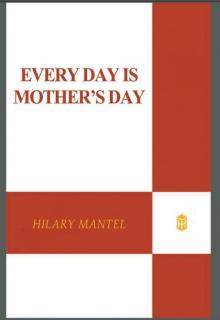 Every Day Is Mother's Day
Every Day Is Mother's Day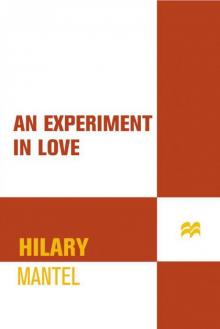 An Experiment in Love
An Experiment in Love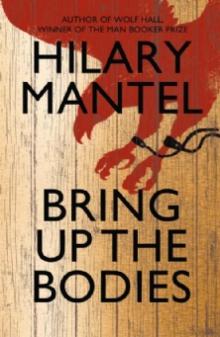 Wolf Hall
Wolf Hall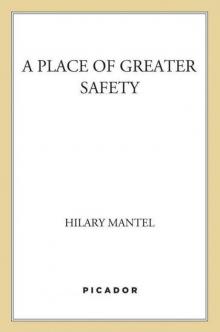 A Place of Greater Safety
A Place of Greater Safety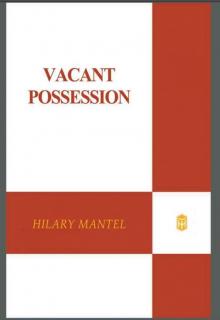 Vacant Possession
Vacant Possession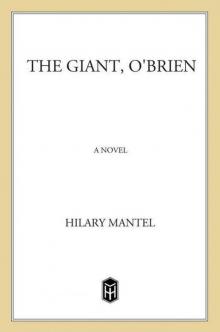 The Giant, O'Brien
The Giant, O'Brien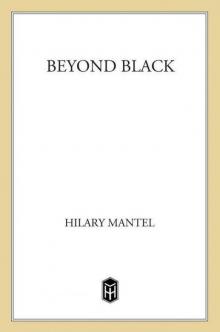 Beyond Black
Beyond Black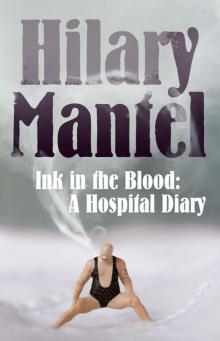 Ink in the Blood: A Hospital Diary
Ink in the Blood: A Hospital Diary The School of English
The School of English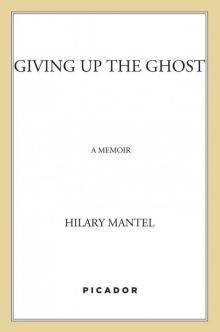 Giving Up the Ghost
Giving Up the Ghost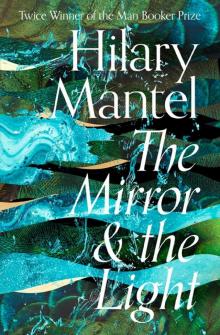 The Mirror and the Light: 2020’s highly anticipated conclusion to the best selling, award winning Wolf Hall series (The Wolf Hall Trilogy, Book 3)
The Mirror and the Light: 2020’s highly anticipated conclusion to the best selling, award winning Wolf Hall series (The Wolf Hall Trilogy, Book 3)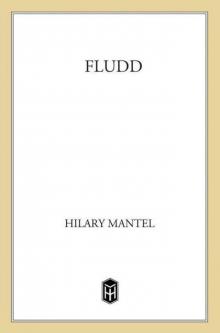 Fludd
Fludd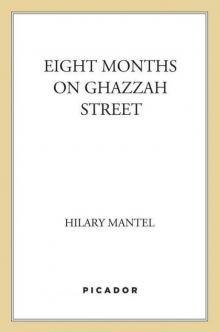 Eight Months on Ghazzah Street
Eight Months on Ghazzah Street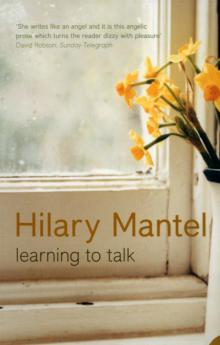 Learning to Talk
Learning to Talk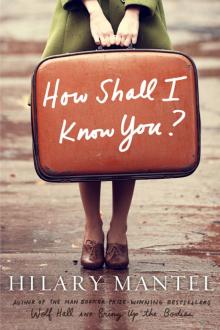 How Shall I Know You?: A Short Story
How Shall I Know You?: A Short Story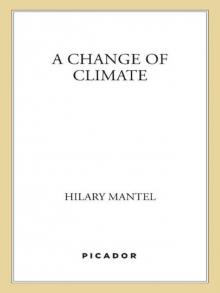 A Change of Climate
A Change of Climate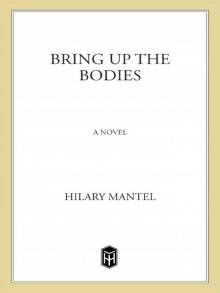 Bring Up the Bodies
Bring Up the Bodies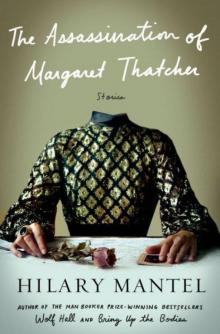 The Assassination of Margaret Thatcher: Stories
The Assassination of Margaret Thatcher: Stories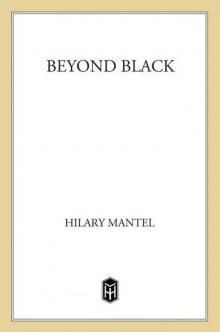 Beyond Black: A Novel
Beyond Black: A Novel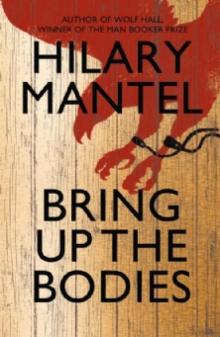 Wolf Hall: Bring Up the Bodies
Wolf Hall: Bring Up the Bodies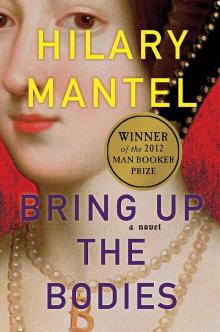 Bring Up the Bodies tct-2
Bring Up the Bodies tct-2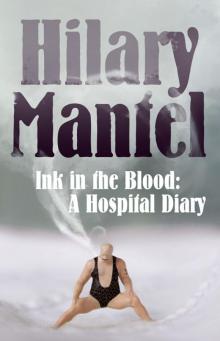 Ink in the Blood
Ink in the Blood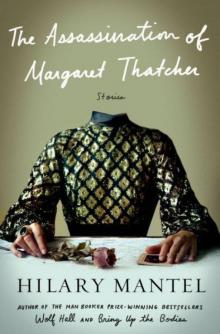 The Assassination of Margaret Thatcher
The Assassination of Margaret Thatcher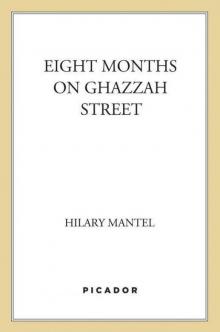 Eight Months on Ghazzah Street: A Novel
Eight Months on Ghazzah Street: A Novel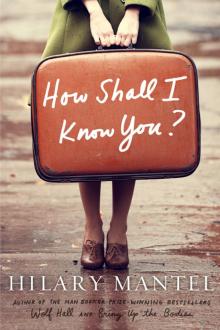 How Shall I Know You?
How Shall I Know You?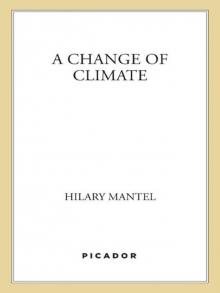 A Change of Climate: A Novel
A Change of Climate: A Novel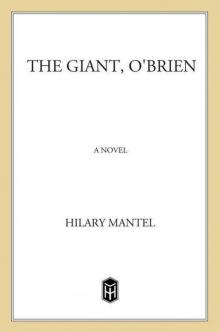 The Giant, O'Brien: A Novel
The Giant, O'Brien: A Novel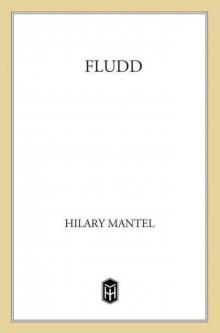 Fludd: A Novel
Fludd: A Novel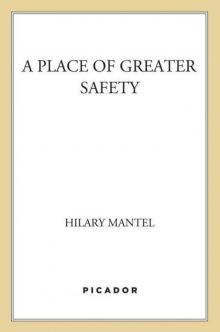 A Place of Greater Safety: A Novel
A Place of Greater Safety: A Novel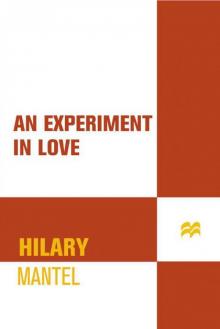 An Experiment in Love: A Novel
An Experiment in Love: A Novel